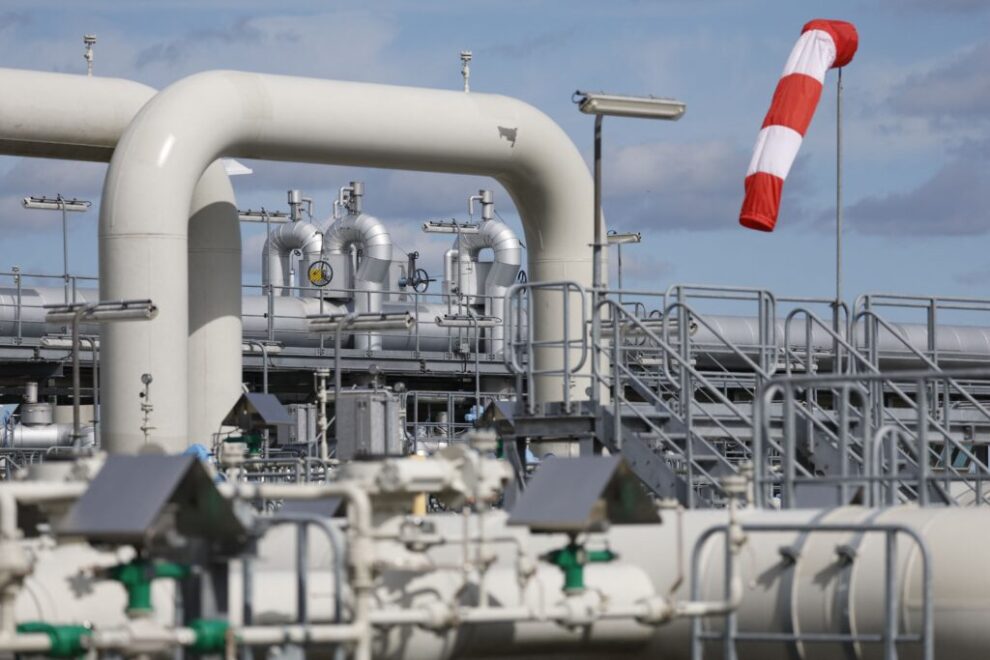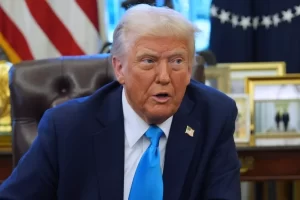EU countries want a change in the proposal, worried that a gas buying program designed to exclude Russia may end up allowing Moscow’s gas in through the back door.
The EU is looking to make its joint natural gas buying platform permanent, but a draft obtained by POLITICO shows it could allow imports from Russia undermining the idea behind the whole scheme.
At a meeting of EU ambassadors on Friday, countries agreed that Spain, which holds the rotating Council presidency, must fix the loophole and prevent Russia from accessing the scheme, according to diplomats from two EU countries who were granted anonymity to speak candidly.
The platform went into effect in April and expires in December. It aims to rein in price rises by harnessing the collective buying power of EU customers and matching buyers and sellers; crucially, it excludes Moscow by banning purchases from entry points into the bloc used by Russia for its pipeline exports.
But according to the early draft from July, the proposal for a new permanent scheme eliminates any mention of banned entry points, instead opting for a looser provision that would allow the European Commission to “decide to temporarily limit, for a fixed term, offers of natural gas from the Russian Federation or Belarus” under certain conditions including where “necessary to protect [countries’] essential security interests.”
That change gives “an open invitation for the Russians to come in and sell” their gas on what would effectively become a permanent EU gas exchange, said Aura Sabadus, a senior analyst at the ICIS market intelligence firm, since the new provision by default includes Moscow in the scheme.
Although it’s up to firms to negotiate actual contracts outside the platform after the Commission helps pair them up, it would “absolutely incentivize” Russian supplies, Sabadus said. “It gives Russian gas a bit more credibility … if the European Union gives its stamp of approval.”
Now, EU capitals want the Spanish Council presidency to ensure “provisions on restrictions to supply of natural gas including liquefied natural gas] from Russia or Belarus through this mechanism … [are] foreseen,” according to an internal negotiation document from this week seen by Politico.
The EU hasn’t sanctioned Russian gas but it has set a target for the bloc to phase out imports from Moscow by 2027. Some EU countries like Hungary and Austria continue buying pipeline gas from Russia, while others including Spain and France buy Moscow’s liquefied natural gas via ship.
The previous language had prompted worries from countries including Poland, Estonia, Latvia and Lithuania, according to diplomats from three EU countries.
The biggest risk is not necessarily that Russian firms would join the platform directly but they could do so through third countries including Turkey, according to one of the diplomats, given its state-run energy firm Botaş can buy gas from Russia via the subsea TurkStream pipeline.
The EU’s problem is that banning trade on specific entry points in permanent legislation might violate World Trade Organization rules, two of the diplomats said.
Broader doubts
The worries come against a backdrop of wider skepticism over the platform, which was hailed as a radical step toward greater EU solidarity when it was launched.
Since April, the platform has matched almost 29 billion cubic meters (bcm) of gas demand from suppliers to potential buyers via two competitive tenders, with a third expected in October. However, not all these volumes may have been actually contracted. A Commission spokesperson said the EU executive “does not have access to the contractual conditions when contracts are signed.”
In the first seven months of this year, the EU consumed 197 bcm of gas.
“The main question for me is, is this platform working at all? Honestly, I don’t think so,” said one EU gas trader, who was granted anonymity as they were not allowed to speak publicly.
Given the EU cannot provide credit guarantees to both sides if something goes wrong, “what’s actually the advantage of this platform compared to me going to the same buyer or seller and negotiating with him directly?” the trader asked.
Still, the Commission’s pointman for the platform, Vice President Maroš Šefčovič, recently said that “concrete transactions are taking place” adding that is “a good sign that the platform brought something better than what you can usually get on the market.”
But persuading countries to make the platform permanent will also mean sacrificing some parts of the existing scheme.
Countries have told the Spanish presidency to ensure participation in the platform is voluntary and make sure the Commission reviews the scheme by 2030, the negotiating document showed.
Source: POLITICO































